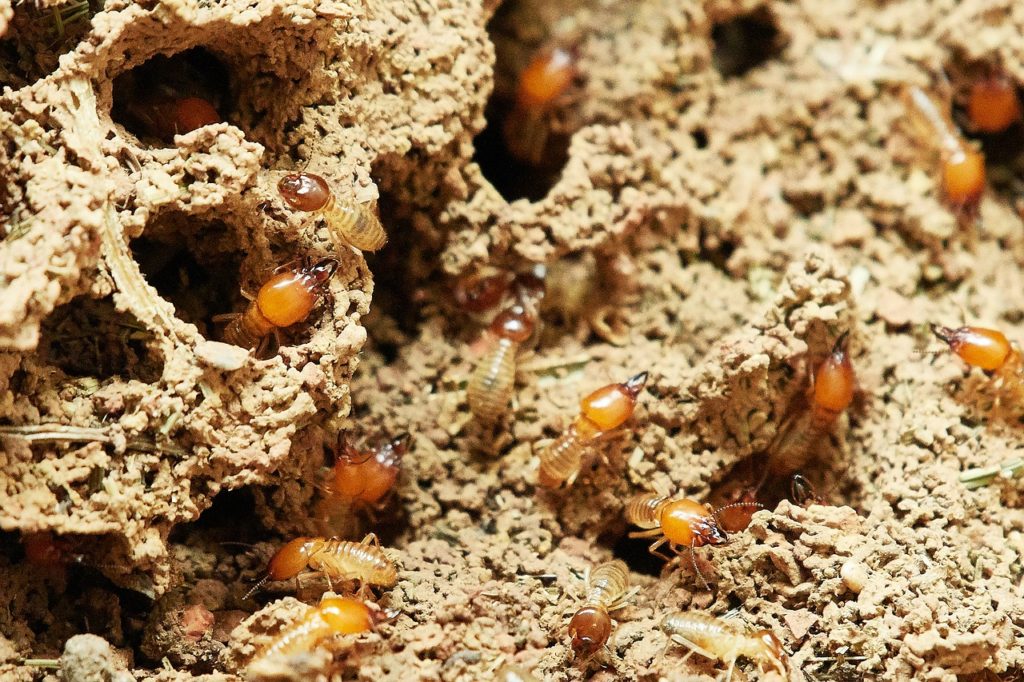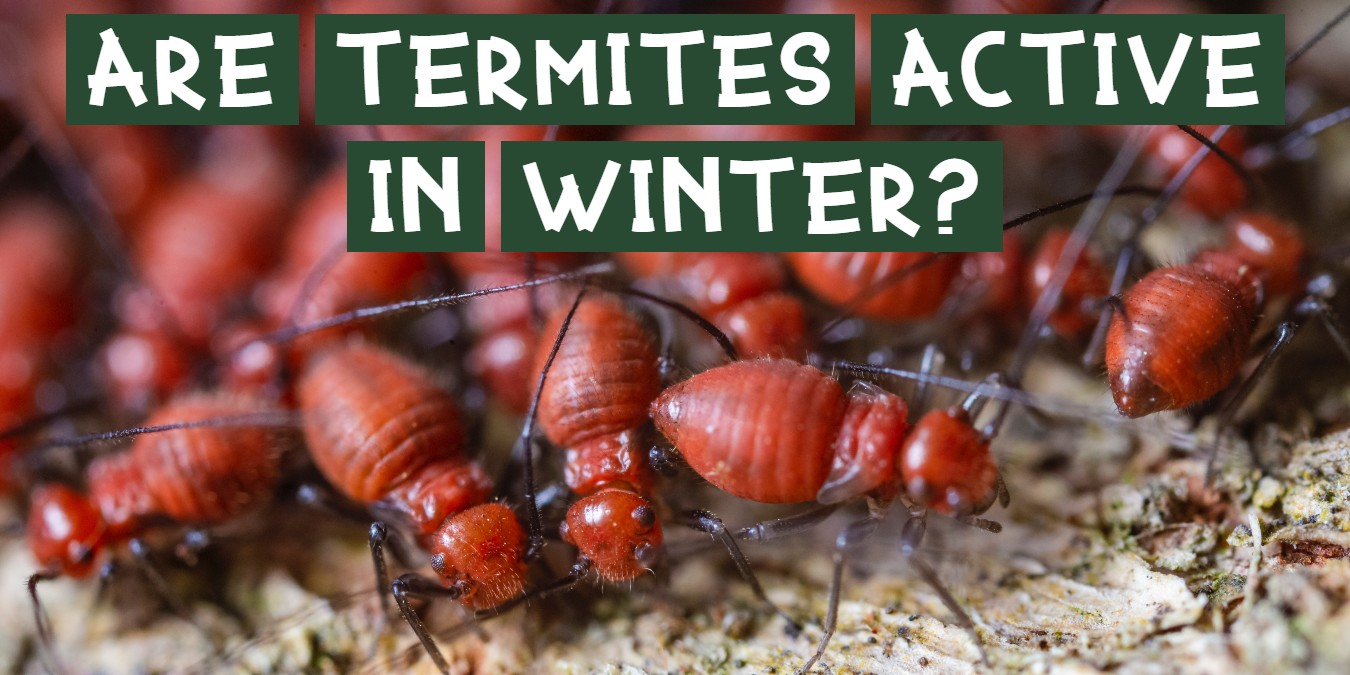With winter comes a slowdown in the activity of insects. With most types of insects, spiders, and similar creatures, winter is a time of hibernation or at least being far less active when it is cold outside. But are termites active in winter? The answer is yes. This is unfortunate for many homeowners hoping that these creatures will at least slow down during this time of the year.
Why are Termites Active in Winter?
The main reason is that termites are for the most part subterranean, which means that they live underground. Being under the soil means they are less subjected to the cold temperatures that winter brings. And because of this, termites do not hibernate like the insects that remain above ground.
However, there are changes to the routines of termites that take place in the winter months. And while active, they are not quite as energetic as they are during the spring, summer, and most of the fall. Of course, this does depend on the location. Some areas of the country experience winters that are not that harsh.
What follows are some of the changes that termites experience during the winter months. This assumes that the winter brings an extended period of cold and snow to the area.
Building Deeper Tunnels
Depending on where the termites reside, the tunnels they create tend to be deeper in the winter time. This is because the top of the soil is exposed to the cold, which makes it less inviting for the termites to move about. Instead, they will dig deeper underground to escape the cold. Like most insects, termites do not like the cold and will instinctively burrow deeper. Are termites active in the winter? Yes, they are and most likely they are digging deeper tunnels.
Burrowing down may seem counterproductive at first since cold temperatures tend to sink downward while heat rises upward. However, the soil acts as insulation. This means that the small amount of heat generated by each termite is magnified as a group. The heat is then trapped under the soil with the termites and this provides enough warmth for them to stay active.

Decreased Termite Reproduction
Depending on the exact species and the age of the queen, she will continue to produce eggs during the winter months. The reproductive process will slow down because of the cold however, it will not stop. For most of the year, the queen will lay eggs at about the same rate. If the nest is near a heat source, then there may be little variation in the number of eggs that are produced.
In northern areas away from heat sources, it is possible that the egg production will cease due to the cold temperatures. This is because if the soil is frozen on top, there is far less access to food sources and the entire nest may come close to a complete halt. Even in the coldest climates, the answer to the question of are termites active in the winter is yes.
Also Read: Do Fleas Die in the Winter?
Seeking Out Heat Sources
Of course, termites that are near active heat sources such as your home may change little in terms of their behavior. After all, it never grows cold inside your home. They will naturally seek it out and remain there during the winter. This means that termites will still be burrowing into wood, consuming the material from the inside and weakening the structure of your home.
Another heat source is a natural one for termites that live in subtropical and tropical areas. This means that they do not experience the cold of the winter months. So, little will change for termites that never see a dip in temperatures that are close to freezing.
Reduction in Termite Swarming in Winter
One reason many wonder whether termites are active in the winter is that they do not see the swarms of termites often found in the spring and summer months. Outside of tropical areas, such as southern parts of Florida for example, termites will rarely swarm in the months of December, January, or February unless there is an unusual warm streak. Swarming generally occurs when temperatures first reach the 70-degree F (21˚C) range during the spring. This is an active season for termites as they spread out, create new nests, and breed to create even more termites.
An early spring can bring about more active termites. But this also makes them vulnerable if winter makes a return once they become more active. Like many other insects, termites are creatures of habit. Once they start venturing out because of the warmth, they are far more vulnerable if it should turn cold again. A sudden change of the temperature can cause termites to die in large numbers.

Signs of Termite Infestation
Even if it is cold outside, that does not mean termites stop their search for warmer places. You will have the question of are termites active in winter answered when you see the following signs in and around your home.
Damaged Wood
The tell-tale sign of termites is the wood that they have consumed from the inside. However, this may be the hardest to spot since it requires you to handle the wood to feel its damage. Termites do not like to expose themselves to the outside environment if at all possible. So you should check for signs of damaged wood by touching, pressing, and testing the exposed wood structures of your home.
Mud Tunnels
One of the most obvious signs of termite infestation is the tunnels through the mud that come from outside to inside your home. If the temperatures warm well above freezing during the winter, you may see mud tunnels heading into the cracks and openings of your residence. If so, it is time to call an exterminator.
Annual Termite Inspection
All homeowners should have an annual inspection for termites performed by a trained exterminator. They can see the subtle signs of termite infestation and take the appropriate action. When combined with your own inspections throughout the year and preventative measures, you can limit the ability of termites to enter and damage your home.
Are termites active in winter? Yes! Much to our annoyance, termites do not die nor hibernate in the winter months. But there are things you can do to prevent them from invading your home. If you take the steps today to keep them away from your residence, you can prevent big issues from happening tomorrow.
You Might Also Be Interested in Reading: Where Do Mosquitoes Go in the Winter?

